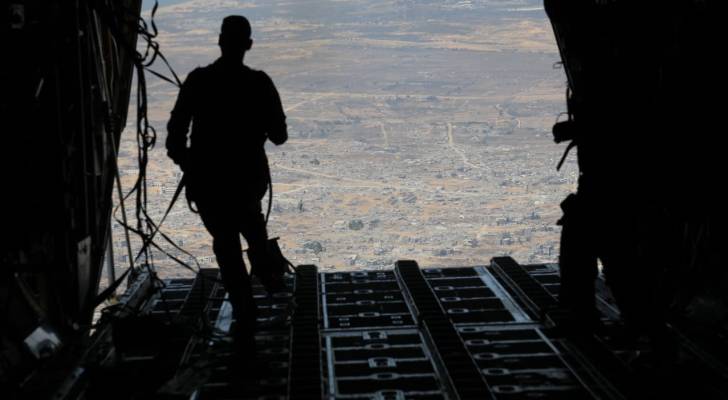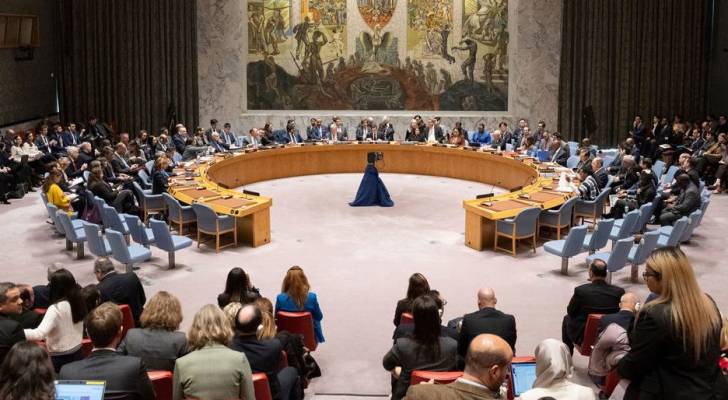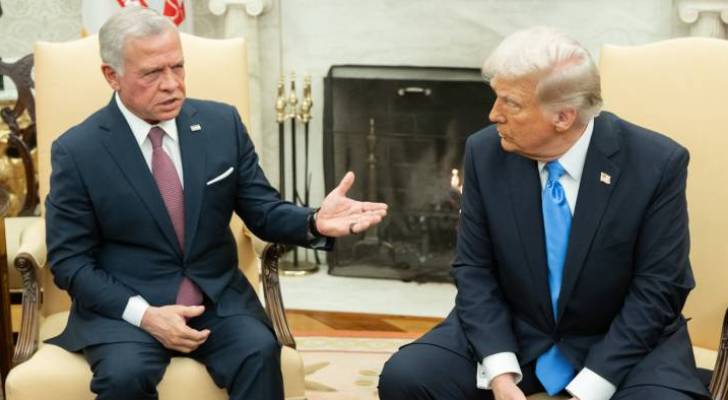Interior minister inaugurates upgraded Jaber Border facilities to enhance security, travel
The Jordan Times
AMMAN — Minister of Interior Mazen Faraya on Saturday inaugurated newly developed infrastructure at the Jaber border crossing with Syria, aimed at enhancing border security, streamlining travel procedures and facilitating the voluntary return of Syrian refugees.
The new facilities include a dedicated terminal for buses arriving from Syria, a modern customs hall equipped with advanced technology and a fully integrated border management operations room.
The inauguration ceremony was attended by senior security and customs officials, representatives from the EU and the United Nations Office on Drugs and Crime (UNODC), according to Al Mamlaka TV.
In his remarks, Faraya expressed appreciation for the EU’s continued support, describing it as a “key partner” in promoting regional development, stability, and security. He also commended the UNODC for its role in implementing border-related projects and enhancing institutional capacity.
The Jaber crossing, Jordan’s third busiest land border point, has witnessed a significant increase in traffic, with the number of users doubling in the first five months of 2025 compared with the same period last year. The border recorded its highest traffic volume on record just before Eid Al-Adha, according to Faraya.
The minister stressed that strengthening Jordan’s border infrastructure benefits not only the Kingdom but also the broader region, noting that the upgrades aim to facilitate smoother procedures, reduce smuggling, and bolster surveillance capabilities. “These efforts serve the region as a whole,” Faraya said.
The newly launched operations room, which is connected in real time to central offices of Jordan’s security and customs agencies, is expected to improve coordination, reduce congestion, and shorten waiting times, thereby enhancing the overall experience for travellers.
The new bus terminal would accommodate up to 150 buses per day arriving from Syria, easing pressure on the older facility and reducing passenger waiting times by up to one-third, Faraya added.
The government has allocated JD5 million for broader border development, while the new infrastructure at Jaber was financed by the EU and implemented by the UNODC.
An agreement has also been signed with the Greater Amman Municipality to develop green spaces at the site, offering travellers a more comfortable environment.
Faraya said the upgraded infrastructure could also support the voluntary return of Syrian refugees. Nearly 97,000 Syrians have returned home in recent months, he noted, with more expected as schools and universities enter summer recess and conditions in Syria improve.
Speaking at the event, EU Ambassador to Jordan Pierre-Christophe Chatzisavas said the project is part of a wider EU initiative to support integrated border management in Jordan. He added that the improved facilities could encourage more refugees to return voluntarily while also enhancing regional security cooperation.
“This is a vital project that strengthens Jordan’s border capabilities and supports our shared objectives of stability and development,” Chatzisavas said.
UNODC Regional Representative Cristina Albertin said the organisation’s joint projects with Jordan aim to combat cross-border and organised crime, reduce drug and arms smuggling and uphold the rule of law and human rights.
Following the inauguration, Faraya toured the upgraded facilities and met with personnel from various departments. He emphasised the need to uphold professionalism and ensure humane treatment at border crossings, describing them as “the Kingdom’s front line and gateway.”
Latest News
-
 Jordan carries out two more Gaza aid airdrops, with UAE participation
Jordan carries out two more Gaza aid airdrops, with UAE participation
-
 Trump: I spoke with Netanyahu, working on plans for Gaza
Trump: I spoke with Netanyahu, working on plans for Gaza
-
 Two-state solution back in focus at UN peace summit
Two-state solution back in focus at UN peace summit
-
 Jordan to continue Gaza aid efforts, rejects skepticism: spokesman
Jordan to continue Gaza aid efforts, rejects skepticism: spokesman
-
 King, in call with Trump, discusses regional developments
King, in call with Trump, discusses regional developments